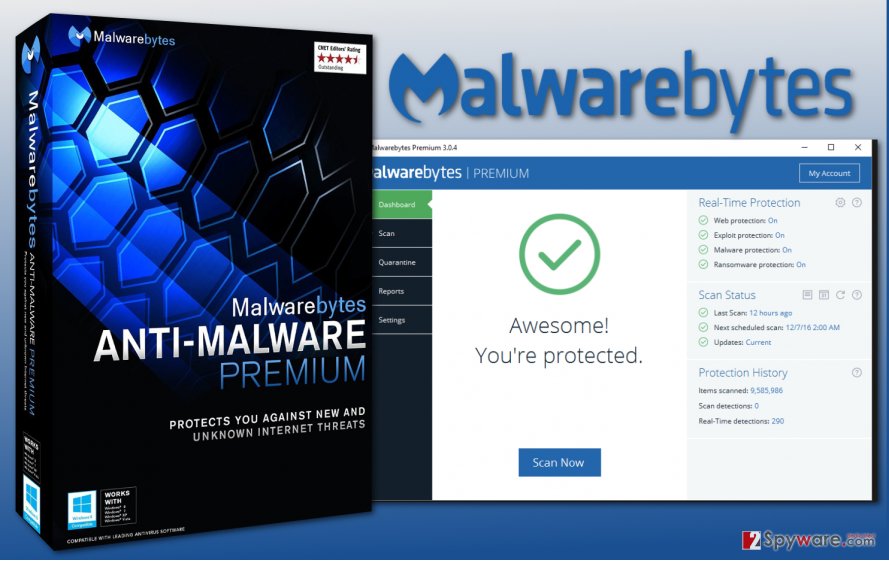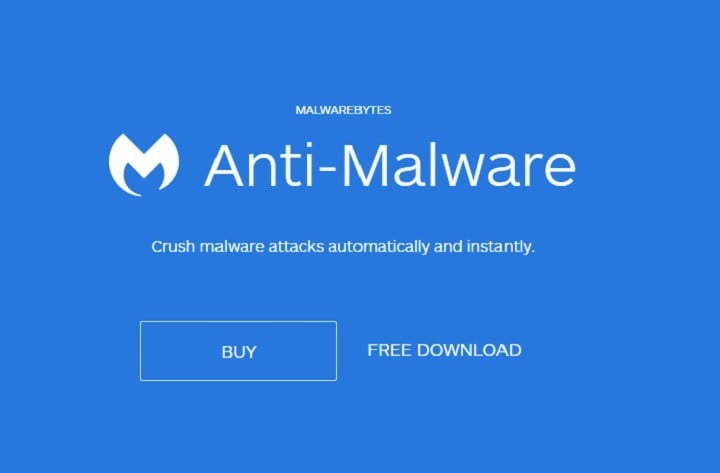

- #ANTIVIRUS GRATUIT MALWAREBYTES ANTI MALWARE SOFTWARE#
- #ANTIVIRUS GRATUIT MALWAREBYTES ANTI MALWARE PLUS#
- #ANTIVIRUS GRATUIT MALWAREBYTES ANTI MALWARE FREE#
#ANTIVIRUS GRATUIT MALWAREBYTES ANTI MALWARE SOFTWARE#
Such attacks might occur via your hardware (like a backdoor) or through your software (like an exploit). Businesses often employ a number of different strategies to guard against threats, a foundational one of which is known as endpoint protection.Ĭybersecurity attacks often aim to do things like hold your computer hostage, steal system resources (as in a botnet), record your passwords and usernames, and a whole host of other bad things. For businesses and organizations, cybersecurity is a broad and important field as cybersecurity attacks continue to make headlines.
#ANTIVIRUS GRATUIT MALWAREBYTES ANTI MALWARE PLUS#
For home users, these strategies include both antivirus and anti-malware protection, plus other means to stay safe online like browser protection or a VPN for online privacy.

TRY BUSINESS ENDPOINT SECURITY What is cybersecurity?Ĭybersecurity, or computer security, is a catchall term for any strategy for protecting one's system from malicious attacks.

Try Malwarebytes for Business Endpoint Security 14-day Trial. Keep your business data safe with next-gen antivirus (NGAV) and endpoint protection.
#ANTIVIRUS GRATUIT MALWAREBYTES ANTI MALWARE FREE#
Both of these terms fall under the broader term " cybersecurity."Ĭomprehensive cyber protection for your computer and devices.Įxplore antivirus that helps keep your personal data safe.ĭownload Malwarebytes Premium free for 14 days. Both antivirus and anti-malware typically detect and block threats, and remove any threats that make it on to a device. "Anti-malware" is intended to be a broader description than "antivirus," but antivirus has broadened in common usage to describe the same type of software. The term antivirus refers to computer viruses that were early online threats, and anti-malware refers to the term "malware," which is an umbrella term for any kind of malicious software (including viruses). Today, the terms antivirus and anti-malware are often used interchangeably to refer to cybersecurity software that blocks viruses and other types of malware from computers and mobile devices. What's the difference between antivirus and anti-malware? Today, cybersecurity companies like Malwarebytes employ several different methods to detect, block, or remove malware from a device. Early antivirus programs would compare software file signatures against a list of known viruses to see if they matched, and if so, block them. Originally, it was created to protect against computer viruses, but now it's more of a general term to describe software that uses a combination of advanced technologies to protect against a variety of threats, including ransomware, spyware, and even never-before-seen zero day attacks. Sure, both refer to cybersecurity software, but what do these terms actually mean? What is the difference between antivirus and anti-malware, and are they both still relevant in dealing with today's online threats? Let's take a deep dive into the world of cybersecurity semantics and unpack these terms.Īntivirus is software that is designed to detect, protect against, and remove malware on a computer or mobile device. At Malwarebytes, we're all for precision - especially when it comes to two commonly confused cybersecurity concepts that get used interchangeably: antivirus and anti-malware.


 0 kommentar(er)
0 kommentar(er)
